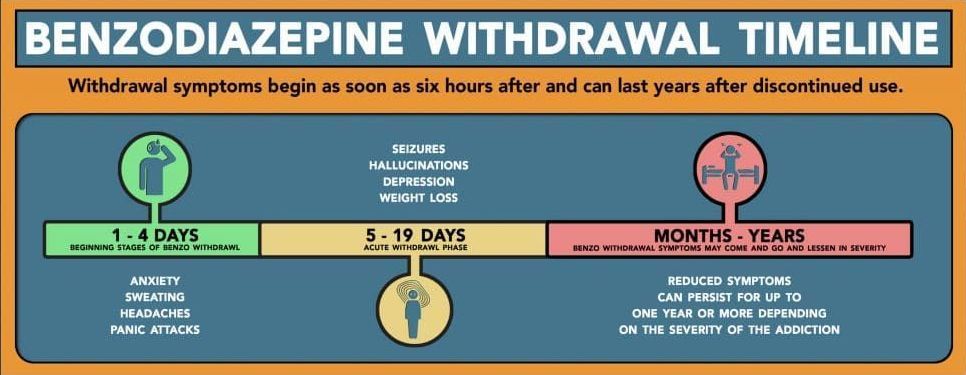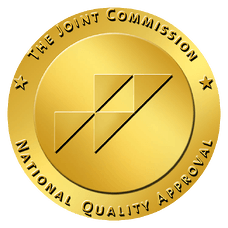Benzodiazepine Addiction Treatment & Rehab
While the symptoms of benzodiazepine addiction withdrawal can be severe, undergoing rehabilitation at a medical treatment facility is the safest path to a healthier lifestyle.
Benzodiazepines, commonly known as "benzos," are frequently prescribed medications used to address stress-related issues such as anxiety disorders and insomnia. Some individuals may develop a dependency or addiction to these drugs either through intentional misuse or as a result of following a medical prescription. The deliberate misuse of benzos can lead to more severe consequences, as the intense withdrawal symptoms can make reducing or eliminating dosage very challenging.
It is crucial for individuals to be aware of the available options for benzodiazepine treatment and rehabilitation. Wabash Recovery offers assistance in understanding the underlying causes of substance use disorders and in learning effective coping strategies for any co-occurring disorders related to benzo misuse.
Benzodiazepine Addiction Treatment
When dependency on benzodiazepines forms, seeking treatment is essential to establish a solid foundation for recovery. The initial stages of benzodiazepine rehabilitation involve facing withdrawal, where the body readjusts to not relying on the drug. Initially, the body may react negatively to the absence of benzodiazepines, as it had become reliant on the drug for proper functioning.
Although benzos are commonly prescribed for conditions like insomnia, seizures, epilepsy, and other mental health disorders, certain benzos can lead to "rebound effects." A rebound effect refers to a withdrawal symptom that originally prompted the use of the drug. In the case of benzodiazepines, individuals may endure severe sleep disturbances, anxiety, panic attacks, or seizures during withdrawal. To prevent or alleviate these effects, it is advisable for individuals to seek medical support so that healthcare professionals can monitor them and provide symptom-relieving medications as necessary.
Complete the pre-screen form below to initiate the admission process. Our admissions team will contact you shortly.
Is Benzo Rehab Always Necessary?
Rehab for benzodiazepine addiction is a crucial component of overcoming substance use disorder. While addiction is a lifelong challenge, it can be effectively managed in a safe and healthy manner long after the last dose. Many individuals who have faced substance use disorders in the past have found success by completing comprehensive rehab programs that address both physical and psychological recovery. They now live free from addiction, having learned essential coping strategies during their rehabilitation journey.
Benzos are commonly prescribed for individuals with mental health conditions, making the search for treatment for co-occurring disorders a complex process. Wabash Recovery specializes in providing tailored treatment for those confronting addiction and mental health challenges, emphasizing the importance of finding holistic approaches to manage both conditions effectively.
Benzodiazepine Treatment Options
Individuals grappling with benzodiazepine addiction are encouraged to seek professional help, although identifying the right treatment can be a daunting task. Not all treatment facilities are alike, and varying treatment plans are offered within each rehab center. It's essential to select a facility that provides a comprehensive range of care options and personalized treatment strategies to ensure a successful recovery journey. Treatment options may include:
- Comprehensive evaluation and diagnosis
- Development of a personalized treatment plan
- Supervised detoxification
- Inpatient or outpatient rehab programs
- Individual, group, or family therapy sessions
- Aftercare support and sober living options
- Utilization of alternative therapy techniques
Upon deciding to pursue treatment, the initial step involves assessing the required level of care. Through this evaluation, any co-occurring disorders can be effectively identified and treated alongside the addiction issue. Following the assessment, the detox process begins to rid the body of drugs, triggering withdrawal symptoms. Typically, these symptoms appear within 1-2 days of the last dose and may persist for 2-4 weeks or longer, varying from person to person. Detox is considered complete once the body eliminates all traces of benzos from the system.
Seeking a medical detox facility is the safest route to continue the rehabilitation process, as benzodiazepine withdrawal symptoms can be severe. Attempting at-home or rapid detox approaches could increase the risk of relapse due to cravings during the detox phase and in the subsequent weeks. Wabash Recovery ensures that patients receive proper medical care, including necessary medication and monitoring of withdrawal symptoms, in a secure and supportive environment.

Wabash Recovery: Inpatient Treatment:
offers a crucial step for individuals struggling with drug addiction. Inpatient rehabilitation provides a safe and supportive environment, allowing individuals to distance themselves from triggering influences and environments.
In the Wabash Recovery: Inpatient Treatment program, patients have the opportunity to engage with healthcare professionals such as doctors, nurses, and therapists on a daily basis while residing in a rehabilitation facility. With 24-hour care available, patients receive comprehensive support to address co-occurring disorders, lingering withdrawal symptoms, and persistent cravings post-detox. The duration of inpatient rehab typically ranges from 30 to 45 days, tailored to meet the unique needs of each individual.
Clients at Wabash Recovery receive personalized nutrition plans and access to amenities such as gyms, basketball and volleyball courts, yoga therapy sessions, and other recreational activities based on their chosen facility. Additional elements of inpatient addiction rehabilitation include:
- Comprehensive evaluation and treatment planning
- 24-hour medical care
- Medication management and withdrawal monitoring
- Individual and group therapy sessions
- Outpatient treatment and aftercare planning
Inpatient rehab plays a critical role in the recovery journey, offering a structured and intensive approach that often leads to more robust outcomes. While not mandatory, opting for inpatient treatment is highly recommended for its potential to foster a stronger and more sustainable recovery path.
Wabash Recovery also offers Outpatient Treatment for benzodiazepine addiction, providing similar therapeutic services as inpatient rehabilitation while allowing clients to reside at home or in a supportive environment. This outpatient program includes counseling sessions, personalized aftercare planning, and continued medication support to manage withdrawal symptoms. Treatment schedules are tailored to address individual needs, reflecting Wabash Recovery's commitment to crafting tailored recovery plans and equipping clients with essential resources for their journey to wellness.
Wabash Recovery: The Treatment Process for Benzo Addiction
The rehabilitation and treatment process at Wabash Recovery is designed not only to rid the body of harmful substances but also to unearth the underlying causes of addiction through counseling sessions and thorough evaluations conducted by trained medical professionals. Drug addiction exerts a powerful grip on many individuals, leading them to feel trapped as they rely on benzodiazepines to address issues such as anxiety, seizures, and more.
Duration of Benzodiazepine Treatment
The question of how long benzodiazepine treatment lasts does not have a one-size-fits-all answer. Factors such as height, weight, age, and pre-treatment dosage levels contribute to the variability in treatment duration for individuals struggling with benzo addiction. Typically, addiction treatment involving detoxification, inpatient rehabilitation, outpatient therapy, and aftercare can span several months, though the specific stages needed may vary for each person.
Recovery from drug addiction is a lifelong journey. While the road to recovery may present challenges, breaking free from addictive substances is attainable for those grappling with substance use disorders. Regardless of the duration of treatment, enrolling in a reputable rehab program lays a strong foundation for continued recovery post-treatment.
How to pay for Benzo Recovery?
Wabash Recovery accepts most insurances, including Medicaid (HIP) Healthy Indiana Plan, for benzodiazepine rehab. Our customized treatment and rehabilitation costs are designed to meet each client's specific needs. Recognizing the importance of prioritizing medical care in the recovery process, we discourage opting for unsafe cost-cutting alternatives like at-home or rapid detox programs.
We understand that financial concerns may arise, which is why we offer flexible payment options to help clients cover out-of-pocket expenses not covered by insurance. Investing in a safe and comprehensive recovery journey is essential for long-term success, and Wabash Recovery is here to support you every step of the way.
If you or a loved one is grappling with benzodiazepine addiction, do not hesitate to seek help promptly. A reputable treatment facility can offer the essential medical support needed to pursue a healthier life. Contact Wabash Recovery for a free and confidential consultation to speak with an informed representative who can assist in making a transformative decision towards healing.



